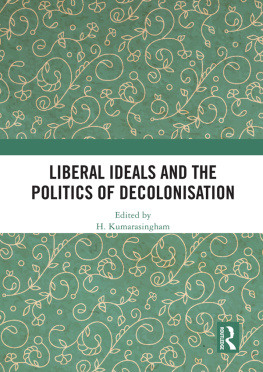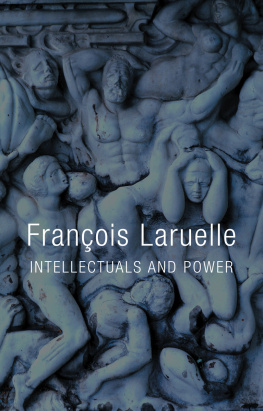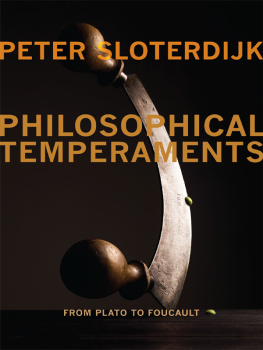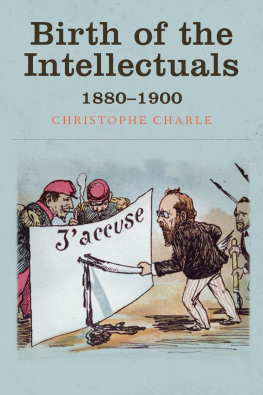Routledge Revivals
Intellectuals in Politics in the Greek World
Intellectuals in Politics in the Greek World, first published in 1984, was the first comprehensive study of this recurrent theme in political sociology with specific reference to antiquity, and led to significant revaluation of the role of intellectuals in everyday political life.
The term intellectual is carefully defined, and figures as diverse as Pythagoras, Plato and Aristotle; Isocrates, Heracleides of Ponteius and Clearchus of Soli are discussed. The author examines the difference between the success of an intellectual politician, like Solon, and the failure of those such as Plato who attempted to mould society to abstract ideals.
It is concluded that, ultimately, most philosophers were conspicuously unsuccessful when they intervened in politics: citizens regarded them as propagandists for their rulers, while rulers treated them as intellectual ornaments. The result was that many thinkers retreated to interscholastic disputation where the political objects of discussion increasingly became far removed from contemporary reality.
First published in 1984
by Croom Helm Ltd
This edition first published in 2014 by Routledge
2 Park Square, Milton Park, Abingdon, Oxon, OX14 4RN
and by Routledge
711 Third Avenue, New York, NY 10017
Routledge is an imprint of the Taylor & Francis Group, an informa business
1984 Frank Leslie Vatai
The right of Frank Leslie Vatai to be identified as author of this work has been asserted by him in accordance with sections 77 and 78 of the Copyright, Designs and Patents Act 1988.
All rights reserved. No part of this book may be reprinted or reproduced or utilised in any form or by any electronic, mechanical, or other means, now known or hereafter invented, including photocopying and recording, or in any information storage or retrieval system, without permission in writing from the publishers.
Publishers Note
The publisher has gone to great lengths to ensure the quality of this reprint but points out that some imperfections in the original copies may be apparent.
Disclaimer
The publisher has made every effort to trace copyright holders and welcomes correspondence from those they have been unable to contact.
A Library of Congress record exists under LC control number: 84015589
ISBN 13: 978-0-415-74937-4 (hbk)
ISBN 13: 978-1-315-79617-8 (ebk)
Additional materials are available on the companion website at
http://www.routledge.com/books/series/Routledge_Revivals
1984 Frank L. Vatai
Croom Helm Ltd, Provident House, Burrell Row,
Beckenham, Kent BR3 1AT
Croom Helm Australia Pty Ltd, First Floor,
139 King Street, Sydney, NSW 2001, Australia
British Library Cataloguing in Publication Data
Vatai, Frank Leslie
Intellectuals in politics in the Greek world.
1. Intellectuals Greece Political activity
2. Greece Politics and government To 146 B.C.
3. Greece Politics and government 146 B.C.
323 A.D.
I. Title
323.32 JC75.I/
ISBN 0-7099-2613-8
Croom Helm, 51 Washington Street,
Dover, New Hampshire, 03820 USA
Library of Congress Cataloging in Publication Data
Vatai, Frank Leslie.
Intellectuals in politics in the Greek world.
Bibliography: p. 168
Includes index.
1. Greece Politics and government To 146 B.C. 2. Intellectuals Greece Political activity. 3. Elite (Social sciences) Greece. I. Title.
DF82.V38 1984 305.5520938 84-15589
ISBN 0-7099-2613-8 (U.S.)
Typeset by Columns of Reading
Printed and bound in Great Britain by
Biddies Ltd, Guildford and Kings Lynn
CONTENTS
To my mother and father,
Irene and Laslo
The publication of a first book gives its author the opportunity of looking back and acknowledging debts. Louis Gottschalk and William Bossenbrook first awakened my interest in history, and Finley A. Hooper led me to the study of Greece and Rome. My dissertation committee, Thomas W. Africa, Gerald Kadish, Saul Levin and W.Warren Wagar, made many valuable criticisms of form and content. Professors Africa and Levin in particular have been very generous with their time and advice. Jacques Kornberg read and commented on parts of my first chapter. All have played a role in the formation of this book, but I alone am responsible for any remaining errors or misinterpretations. I thank them all, along with my parents to whom this book is respectfully dedicated.
The philosopher, on the other hand, is the reaction: he desires the old virtue. He sees the grounds of decay in the decay of institutions, he desires old institutions; he sees the decay in the decay of authority: he seeks new authorities (travels abroad, into foreign literatures, into exotic religions ); he desires the ideal polis after the concept polis has had its day (approximately as the Jews held firm as a people after they had fallen into slavery). They are interested in all tyrants: they want to restore virtue by force majeure.
F. Nietzsche, The Will to Power
No. 427 (Kaufmann)
This book is an exploration of the role of intellectuals in the politics of the classical and Hellenistic periods. Political theory is not discussed except to illuminate the similarities and the differences between what philosophers said about politics and how they behaved in the political arena. The difference between these two attitudes can be broadly termed the difference between theory and practice. The question as to whether intellectuals ever assumed so important a position in society that their very utterances could be considered as political events can, in general terms, be answered in the negative. Kings and tyrants established themselves in powerful positions where they were likened to gods and their word was law; intellectuals, with the possible exception of Pythagoras, were never allowed such a dominant status, save in the eyes of their followers. For some, like Plato, this was a bitter disappointment; others, such as Aristotle, may have felt that the Athenians paid too much attention to resident intellectuals such as himself. The demos had its reasons, however, for Aristotle and his followers maintained close Macedonian links.
The word intellectual cannot be defined with any precision. To add to the difficulties, there is the particularly eclectic nature of the term intellectual. Ray Nichols, in his recent study of Julien Benda, notes the ambiguous nature of what an intellectual is and what counts as an intellectual action:
The discourse is reflexive: in strange mirrors we see (and make) our faces, and experience sudden shocks of recognition. Nowhere is this more true than with the intellectual Perplexity over diverse practices, social and conceptual, and their relations the problem of the intellectual lies here. Efforts to grapple with it in turn reveal
Efforts to turn the mirror into a window are tenuous at best. Of the many discussions and definitions of intellectuals, those of Max Weber and Edward Shils provide the best vantage point from which to commence our survey of Greek intellectuals.
Weber tells us that by intellectuals he understands a group of men who by virtue of their peculiarities have special access to certain achievements considered to be culture values, and who, therefore, usurp the leadership of a culture community. This definition should be augmented by Shilss observation that
there is in society a minority of persons who, more than the ordinary run of their fellow men, are inquiring, and desirous of being in frequent communion with symbols which are more general than the immediate concrete situation of everyday life and remote in their reference in both time and space. In this minority, there is a need to externalize this quest in oral and written discourse This interior need to penetrate beyond the screen of immediate concrete experience marks the existence of the intellectuals in every society.












